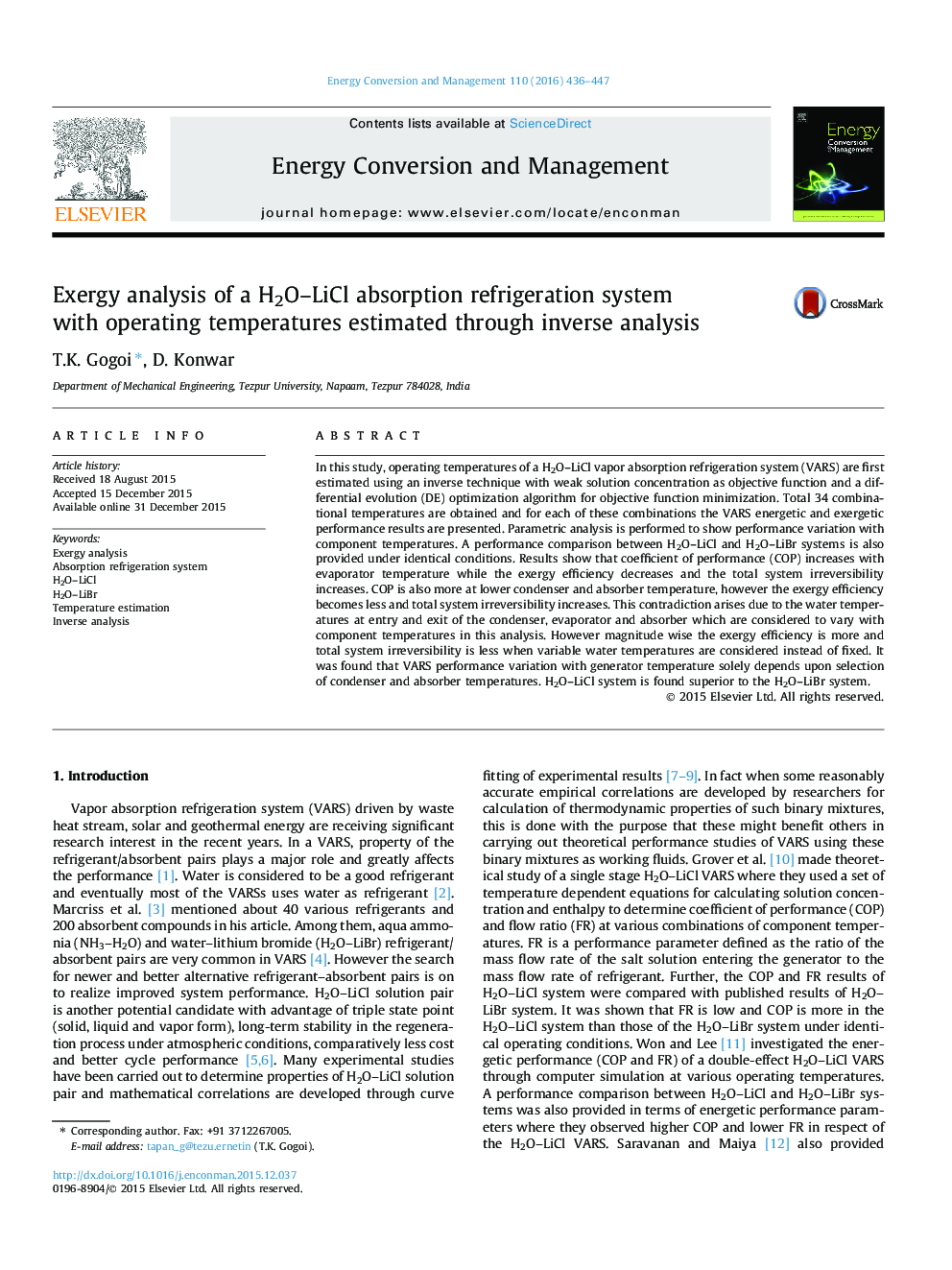| کد مقاله | کد نشریه | سال انتشار | مقاله انگلیسی | نسخه تمام متن |
|---|---|---|---|---|
| 760390 | 1462852 | 2016 | 12 صفحه PDF | دانلود رایگان |

• Operating temperatures of LiCl−H2O VARS are estimated using inverse technique.
• Weak solution concentration limit of 50% is taken as objective function.
• Differential evolution (DE) optimization method is used for objective minimization.
• Exergy analysis is performed and parametric variation is shown.
• Performance comparison is provided with LiBr−H2O system.
In this study, operating temperatures of a H2O–LiCl vapor absorption refrigeration system (VARS) are first estimated using an inverse technique with weak solution concentration as objective function and a differential evolution (DE) optimization algorithm for objective function minimization. Total 34 combinational temperatures are obtained and for each of these combinations the VARS energetic and exergetic performance results are presented. Parametric analysis is performed to show performance variation with component temperatures. A performance comparison between H2O–LiCl and H2O–LiBr systems is also provided under identical conditions. Results show that coefficient of performance (COP) increases with evaporator temperature while the exergy efficiency decreases and the total system irreversibility increases. COP is also more at lower condenser and absorber temperature, however the exergy efficiency becomes less and total system irreversibility increases. This contradiction arises due to the water temperatures at entry and exit of the condenser, evaporator and absorber which are considered to vary with component temperatures in this analysis. However magnitude wise the exergy efficiency is more and total system irreversibility is less when variable water temperatures are considered instead of fixed. It was found that VARS performance variation with generator temperature solely depends upon selection of condenser and absorber temperatures. H2O–LiCl system is found superior to the H2O–LiBr system.
Journal: Energy Conversion and Management - Volume 110, 15 February 2016, Pages 436–447